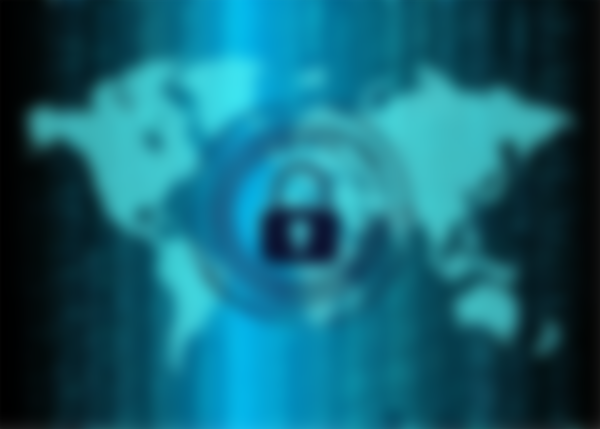The acuteness of the historical nature of the coronavirus comes in large part from the triple conjunction of the immediacy of its impact, the consequences of its global magnitude and the evidence of its transformative nature.
With a speed and certainty seldom combined in this way in international relations, a palpable consensus has emerged both within and between the societies of this world: everything has already changed, and everything will change even more. .
Of course, history teaches us that we must always put the emphasis on novelty into perspective, especially when we are still in the eye of the storm and the precedents of global crises too often forgotten, including pandemics , are legion. .
However, this crisis objectively sets the tone for a new phase in the grammar of international security. It does so first by confirming an emerging trend: unpredictability is now the main factor in this evolving architecture of global security.
The end of the "post-September 11"
For a few years now, this notion of uncertainty had been recognized as fundamental, but this indeterminacy remained too abstract and associated mainly with cybersecurity issues (namely, our lack of control over new technologies added to our blind faith in them " solutionism ” ) and political crises (that is to say, questions about the geographical origin of the“ next hotbed of tensions ”guided by the habit of seeing them only coming from certain destinations). The "Corona upheaval" today gives substance to this notion in a new way. He endows it with a real difficulty, both operational and intellectual, in the face of an intimate materialization of the unexpected.

Likewise, the post-Corona puts a palpable end to this too long post-September 11th in which the world has been loosely housed for nearly two decades. During these nineteen years, the myriad of global insecurities has remained, in one way or another, under the shadow of this "absolute event"which had opened the century in such a dramatic way. Neither the Iraq war in 2003, nor the Arab Spring of 2011, nor the war in Syria that began the same year, nor the episode of the Islamic State in 2013-2017, nor the annexation of Crimea in 2014 or Donald Trump's election to the presidency of the United States in 2016 had dislodged the “post-9/11” prism. This is because in one way or another, these developments had all emerged in the unsettling wake of 9/11. It can now be said that - preceded by fear of an electronic virus in 1999 (Y2K, the Y2K bug) and followed by a respiratory system virus in 2020 - the post-September 11th ended with the eve of its twentieth anniversary, even if this period bequeathed its indelible ultra-safe contribution to the following era.
State building
Beyond the medical aspects, what will be the geopolitical forms of this new pivotal moment which is being born before our eyes? If it is too early to give a clear answer, if we must avoid any historical determinism and if we must insist on the evolutionary nature of this process, four major dimensions are nevertheless already emerging: the strengthening of a marked authoritarian tendency; the deepening of the militarization of the world; standardization of surveillance; and the outburst of a wave of counter-globalization.
First, throughout the world, with the army and police in support, the state entity has clearly reaffirmed its authority during the current crisis, intervening as a savior and super-decision-maker, but also in a punitive way as we have seen. has seen in India, Kenya, the United States, France and elsewhere. States of emergency, emergency regimes and proto-states of siege have been invested with too much ease, even barely veiled enthusiasm, by governments finding in this unexpected situation loopholes in the demands for justice they face. regularly. Beyond the exhilarated bureaucracies and the foolish decision-makers, the exceptional situation gave greater scope to the States already engaged in an authoritarian drift - like the Hungary of Viktor Orban , theRodrigo Duterte's Philippines or Jair Bolsonaro's Brazil - and the autocratic surveyor is indeed finding new social destinations. Pushing back the limits of his own excesses and the violence done to the rule of law in the United States under his mandate , President Donald Trump was able to declare, on April 13, that his authority is "total" .
There is a good chance that this dynamic of interventionist refocusing - started before the coronavirus crisis and reinforced on this occasion - will continue and grow. It will do so all the more since it has today been rationalized almost everywhere by a popular demand for protection. Frightened, societies will question themselves less and less about the merits and the democratic admissibility of these measures and of these insults which occasionally seat the infantilization of citizens - today scolded by police officers issuing them reading of civic-mindedness in upscale neighborhoods and beatings in areas of poverty .
If, then, the interventionism of the 1990s and the wars of the post-September 11th favored the proliferation of martial logics, the current pandemic will, in any event, continue to deepen this pattern of obedience injunctions. . The response to the Covid-19 epidemic logically came within this martial context - French President Emmanuel Macron warning that his country was "at war" - because international dynamics had been worked on in this way for nearly thirty years. All crises can henceforth be seen through this reductive, Manichean "war" prism - indeed, they already are, and war rhetoric has taken precedence over diplomacy worldwide.
This state ubiquity and this martiality - which do not call into question the neoliberalism of the majority of these states but decline it - could therefore be accompanied, or even preceded, by extensive surveillance of geolocated citizens. Installed as a less and less contradicted global standard, it will add a dimension of "necessity" in addition to the argument of social utility already widely advanced. Some UN convention will be able to follow and, in the same way, the diktat of the output will prevail.

Above all, it will be increasingly difficult to establish an imprint and follow-up of these practices introduced in violence , urgency and without parliamentary consultation , as China , Israel , Russia and South Korea have already done. with citizen tracking, the digitization of movement restrictions, the requirement for facial recognition and other innovations, again and again in the name of sacrosanct security. Constitutional ambiguitysituations and the illegibility of certain cases will allow, one can imagine, quarantine for non-medical reasons. As these measures will be implemented through fallible (and manipulable) technologies, the dangers for the citizen of finding themselves in literally Kafkaesque situations will increase significantly. In fact, why, one must wonder, has the future been regularly imagined in dystopia fashion over the last century, from René Barjavel to Margaret Atwood via Aldous Huxley, Philip K. Dick , Pierre Boulle and Ira Levin?
Towards a counter-globalization?
It is probably necessary to temper. Does this involvement of States not have beneficial effects? Doesn't it come to protect the social fabric? Is the State not in its role? Doesn't technology make our lives easier?
Obviously, support measures for the population are welcome everywhere, in particular to reduce increased precariousness; likewise, the reorganization and proper functioning of interaction spaces are undeniably necessary for social order. However, we should not naively veil our eyes to the fact that the current historical period is marked by the growing gap between, on the one hand, sufficient statism which has not finished exhausting itself and, of on the other hand, societies, in the North as well as in the South, increasingly confused by these invasive discourse and tutelary practices - now sanitized, digitalized and racialized .
Today, the redeployed state does not win membership as much as it simply receives it by forfeit. Also, the coronavirus crisis could, finally, very likely give rise to a wave of counter-globalization. Such a wave will not necessarily be the ideologized fact of anti-globalization activists who have been active for a very long time, but perhaps more the result of a new moment of shared fatalism - paradoxically worldwide - as to the limits of interdependence. The feeling is being born, soon followed by practices. This phenomenon can create existential vulnerabilities within societies and not simply economic ones.
The growing conviction that "not all-trade-is-necessarily-good" will result in a strengthening of the logic of international disunity and national protectionism. Like the consolidated authoritarian state, this closure of the world will all in all be part of the pre-existing logic of fortresses to be protected in Europe and walls to be built in America, but also of systems to be enclosed and padlocked in Russia, in China or United Arab Emirates. The imperative need to protect “our” nation against protean threats from outside will become a recurring political theme everywhere, significantly slowing international cooperation.

The post-Corona world will define its own characteristics. And this is where the novelty lies fundamentally, since it will do so while remaining precisely faithful to its logic of inconstancy. Also, we can not yet predict these; in a famous fall Paul Valéry wrote in 1960 that "the unforeseen itself is in the process of transformation and the modern unforeseen is almost unlimited".
This vector of the unknown will make post-Corona geopolitics more social than political. Crossed by hybridity, a form of hierarchical contemporary governance laboratory , it already links “distant” military experiments and “close” social tests . Like the characters in José Saramago's novel Ensaio sobre a cegueira ( The Blind , 1997) struck by an inexplicable epidemic of blindness and who sink into tensions, suspicion, hostility, malice and selfishness , the States themselves will be able to replay this time of the wolf on the world stage, cementing the ambient polarization.
"To something bad luck is good", goes the adage, also old. Let us bet then that within this instability and this unknown, and in order to live and not simply to survive, there will also certainly be born from this crisis a better understanding of our relation to the world, as well as a humility and a generosity in mutual aid which is sorely lacking in an international scene where justice and wisdom are scarce. For the time being, however, we cannot ignore the reinforced signs of the virus of an increasingly sensitive Orwellization of geopolitics.


